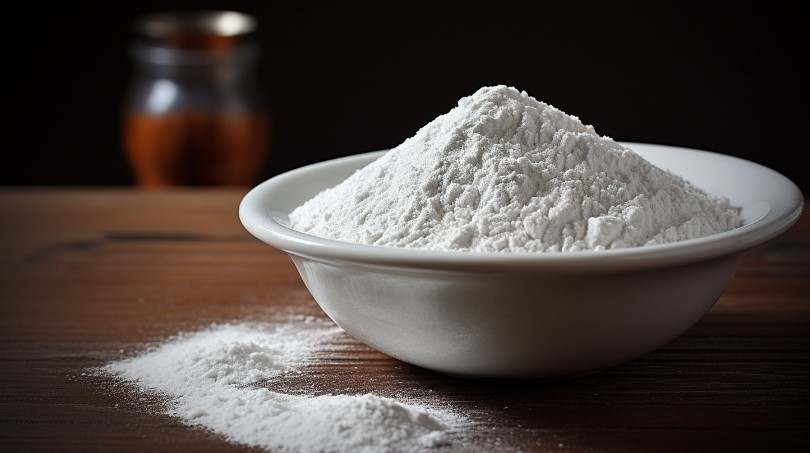choline

Choline, a constituent of lecithin and also found in sphingomyelin, is a source of variable methyl groups in the body and is involved in the synthesis and metabolism of methyl donors. In addition, choline is a precursor to the neurotransmitter acetylcholine.
Absorption metabolism
Part of the choline ingested by adults can be broken down by the gut flora to form betaine and produce methylamine. Unbroken free choline is absorbed in the small intestine.
In addition to free choline, there are choline esters from food sources, mainly choline phosphate, choline glycerine, sphingomyelin and phosphatidylcholine. After enzymatic hydrolysis, free choline is formed, which is absorbed into liver portal circulation.
In addition, fat-soluble phosphatidylcholine and sphingomyelin can also be absorbed into the body through lymph in the form of chylous particles. Therefore, the bioavailability of choline from different sources is different.
Choline is an important component of lecithin and sphingomyelin, and all tissues can store choline, but liver, kidney, breast, placenta, and brain tissues are the most abundant.
The relationship with health
Choline mainly plays its physiological function from two aspects: on the one hand, choline itself or as a choline group needed for the synthesis of other substances plays its physiological role; On the other hand, it performs physiological functions as a methyl donor.
Promote brain development and participate in cell signaling
Choline is involved in cellular signaling, which can promote brain development and improve memory. Choline is essential for the formation of acetylcholine, a neurotransmitter that plays an important role in cognitive activities such as learning and memory, spatial working memory, attention, spontaneous movement, and inquiring behavior.
The hippocampus and cerebral cortex are important organs and tissues involved in learning and memory in the central nervous system. Choline can promote the development of the hippocampus and cerebral cortex in the process of brain development.
Results from studies on epilepsy, Parkinson’s and Alzheimer’s disease have shown that choline can alleviate memory loss and has some effect on attention deficit, hyperactivity, neuromuscular disorders and manic disorders in general.
Promote fat metabolism
VLDL is the only carrier for the liver to export fat to the periphery, and choline is one of the important components of VLDL synthesis. Sufficient choline can synthesize sufficient VLDL, thereby transporting TG in the liver, preventing and reducing excess TG deposition in the liver.
Without choline, fat can accumulate in the liver, forming a fatty liver. The clinical application of choline in the treatment of cirrhosis, hepatitis and other liver diseases has a good effect.
An important component of biofilm
The phospholipids of biofilms are mainly phosphatidylcholine (lecithin), phosphatidylethanolamine, phosphatidylserine and sphingomyelin, among which lecithin is the main phospholipid of cell membrane (> 50%), and choline is the main component of lecithin.
Participate in methyl metabolism
Choline is a source of variable methyl groups in the body, which acts on the products of synthetic methyl groups and participates in methyl metabolism in the body.
After choline ingestion, it can enter different metabolic pathways and produce unstable methyl groups, which are used for homocysteine to form methionine, guanidine acetic acid to form creatine, and epinephrine synthesis.
Deficiency and excess
Lack
Choline deficiency can lead to abnormal liver function and accumulation of large amounts of lipids (mainly triglycerides) in the liver, forming fatty liver and possibly liver cancer.
Choline deficiency also affects kidney function and may lead to abnormalities in water reabsorption, sodium secretion, glomerular filtration rate and renal blood flow, as well as extensive renal bleeding.
For fetuses and infants, it is likely to affect brain development. It is well known that folic acid supplementation can prevent neural tube malformations in the fetus, but choline deficiency can actually cause neural tube malformations in the fetus as well. Both folate and choline can be used as methyl donors to methylate DNA.
Too much
Excessive intake of choline through non-dietary routes such as intravenous and intraperitoneal injections may cause body odor, sweating, salivation, low blood pressure, and liver toxicity.
Main food source
Choline is found in food mainly in the form of lecithin in the cell membrane of various foods. Egg yolk, liver, peanuts, wheat germ, soybean content is very rich, vegetables in lettuce, cauliflower content is also high.
Reference materials:
[1] Chinese Nutrition Society. Reference intake of dietary nutrients for Chinese residents. Beijing: Science Press, 2014. [2]Fisher M C , Zeisel S H , Mar M H , et al. Inhibitors of choline uptake and metabolism cause developmental abnormalities in neurulating mouse embryos[J]. Teratology, 2001, 64(2):114–122.[3]Holler T , Cermak J M , Blusztajn J K . Dietary choline supplementation in pregnant rats increases hippocampal phospholipase D activity of the offspring[J]. The FASEB Journal, 1996, 10(14).[4]Bjelland, I. , et al. “Choline in anxiety and depression: the Hordaland Health Study.” American Journal of Clinical Nutrition 4:1056.[5] Chan K C , So K F , Wu E X . Proton magnetic resonance spectroscopy revealed choline reduction in the visual cortex in an experimental model of chronic glaucoma[J]. Experimental Eye Research, 2009, 88(1):65-70.…………
choline supplier: www.backvita.com
Email: [email protected]
Phone: +86 (029) 8187 2325
